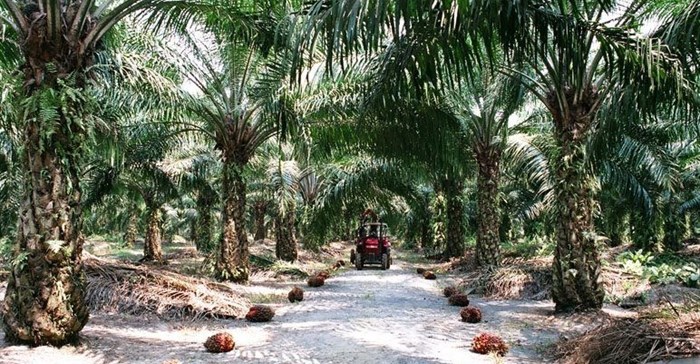
Top stories




The agribusiness investment includes the construction of the palm oil processing plant, and plantation over 1000 hectares in Agou to allow sustainable development of the agricultural sector in Togo.
Here, we chat to Ashok Gupta, chairman and founder of Kaylan Group, to find out more...
Kalyan Group was started in 2013 with a goal to bring in impactful and meaningful changes in the economic and social scenario of countries. Our objective was to build businesses which had a more direct impact on society.
Agribusiness in Africa is primarily based on the export of unprocessed raw material and import of finished value-added goods. In West Africa, the export is of mainly cashew, sesame, ginger, cotton, coffee, cocoa, rubber etc. Major imports comprise palm oil, poultry, rice and wheat, etc.
We hope to build value chains by selecting crops which can impact a large population with maximum positive economic impact. Treading away from the normal crops, traditional and underexplored ‘treasures’ like baobab, shea tree, etc. are in focus in building innovative value chains.
Further, agriculture is all about providing nutrition. Kalyan is working to be a front runner in personalised nutrition in markets around the world and a team is has been deployed consisting of scientists from Netherland, Germany and Switzerland, dieticians, chefs and pharmacologists to launch the business by end of 2020.
This, we believe will be the game-changer for the future health and well-being of the human race which is the need of the hour.

We believe in building value chains from the grass root level, i.e. starting with farming and the farmers, process, package and deliver ready to use products in supermarket shelves around the globe.
We are expanding by working with women who are collectively engaged in making shea butter and baobab products. Because the world is moving toward more natural and ethically responsible sourced products, Kaylan through its brand ‘Naturafrique’ intends to supply 100% artisanal and natural products like shea butter, baobab powder and baobab oil, etc., the sourcing network of which goes deep into the rural landscapes of Togo.
For the farming community, it is essential to have a reliable buyer and reasonably priced products. Moreover, it is important for the farmers to get access to quality inputs and the technical know-how use these inputs. Kalyan’s out-grower programme, which has been in operation since 2016, focusses on suppling high yielding seedlings to farmers.
Sustainable agri-value chains are the result of a collaboration between individual farmers, farmer groups, local aggregators, cooperatives, logistic service providers, processor and buyers. Our focus is to establish and nurture these sort of collaborations for the benefit of all involved.
Oil palm is a traditional crop of plateaux region of Togo, where the Kalyan oil palm plantation is established. Being the first project of its kind in Togo, the goal was to popularise scientific cultivation of oil pam, increase the acreage under the crop, and improve the productivity of oil palm and to establish a steady market for the fruits from farmers and ascertain fair prices for the produce.
The project was successful in establishing a network to supply palm nuts from the catchment area of the project. This happened through collaboration between farmers who were already doing oil palm farming and farmer groups engaged in crude red oil production.
The prime benefit for the local community through agribusiness interventions is the creation of employment. The project employs 300 employees directly and more than 500 people indirectly.
The major benefit is for the more than 2500 farmers who didn’t have regular buyers. On a macro scale, it is essential to showcase successful models to attract private equity in the agribusiness sector. Innovative products, by-products and underexploited resources should be at the forefront.
In Africa, close to 60% of the population lives in rural areas and nearly 50% of the total population depends on agriculture for their livelihood.
According to FAO, the public budget spending on agriculture in Africa has been declining over the years, from 3.7% in 2007 to 2.3% in 2017. This calls for responsibility and the opportunity for the private sector to invest in agribusiness.
PPP models, with the private sector taking the lead and the governments taking up a facilitator role, is key in the development of the sector. Infrastructural development, favourable policies to promote local production, processing industries, mechanisation and strengthening of the agricultural extension system are core to revitalising Africa agriculture, where almost 20% of the population is undernourished.
Some of the real challenges faced on the continent include:
1. Poor logistics systems. The need to have a solid logistics system across each country, which is supported by every government.
2. Digital payment systems. Putting in place faster and smoother transaction, with the support of government. Banks are not always keen on this sort of support, but it is key to growing agriculture and the economy on the continent.
3. Access to technology and the internet. When we help and enable other people, we get stronger together. Governments need to realise and understand that the Internet is equally as important as electricity.
4. Access to bank lending and financing is critical. Without financing how can business develop? It’s like a desert without water, for example, and financing is like water in business. The cost of borrowing is too high, which is a huge deterrent to business growth.
5. Education is important to create and build future leaders.
6. E-government. Exploring its transparency and efficiency.
In agriculture, we should strive to achieve self-sufficiency in terms of food production. Overall almost 1/4th of cereals consumed in Africa is being imported. This should change; in terms of essential food commodities, there should be self-sufficiency.
To achieve this is challenging, but the process needs to focus on basic agricultural research, the extension thereof, to make available inputs including credit in order for crops to be efficiently procured, stored and distributed.
Like any other sector, the Covid-19 pandemic has an adverse effect on agriculture. Markets for produces have been badly hit and its impact has been visible with regards to supply chain congestion, which is already seen in ports.
Hospitality, tourism and agriculture are already hit. Only time will tell how long the pandemic will last and what sort of measures, especially that of biosecurity measures, importers initiate and how it how impact exports.
Times like these should be taken as an opportunity for course correction, to have a balance in terms of imports and exports and to diversify the sector.